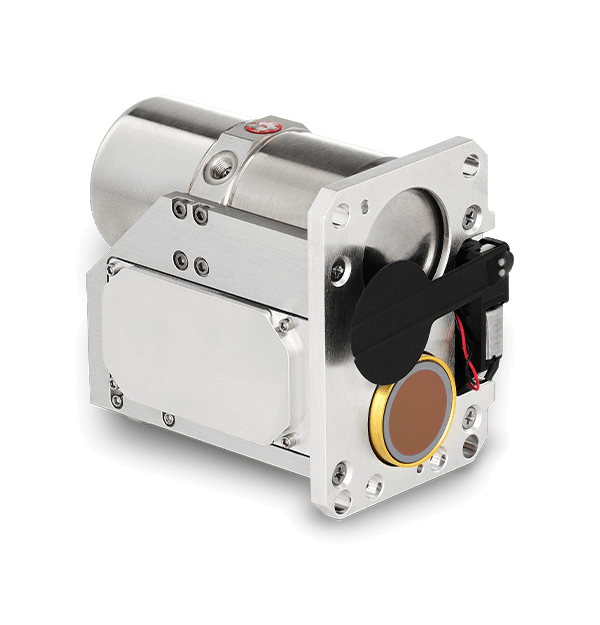
The ITAR-free Neutrino LC OGI provides 640x512 VGA-resolution MWIR optical-gas-imaging (OGI) and is easily integrated into a wide range of solutions to detect, measure, and visualize gas emissions. Teledyne FLIR’s High Operating Temperature (HOT) FPA technology and linear micro-cooler provide integrators with the industry-best, two-year warranty and significantly longer endurance in the leading size, weight, and power (SWaP) module available today. Quick cool down and time-to-image combined with low-power and quiet, low-vibration operation make Neutrino LC OGI the choice for battery-powered handhelds, UAVs (unmanned aerial vehicles), small gimbals, and fixed-mounted gas leak detection systems within processing facilities, refineries, pipelines, tank farms, and well pads for the oil and gas industry.
Designed to meet EPA performance requirements, the narrow 3.3 µm infrared (IR) spectral band accurately detects hydrocarbons including methane, propane, butane, and other greenhouse gases and volatile organic compounds (VOCs). The Neutrino LC OGI can be operated in VGA mode to maximize scene awareness or Bin mode to improve sensitivity to an industry-leading <20 mK. Backed by a standard two-year warranty and a professional technical support team for integration assistance, the Neutrino LC OGI is the lowest-risk and highest-performance OEM camera module for integrators developing methane monitoring and other gas imaging solutions today.









